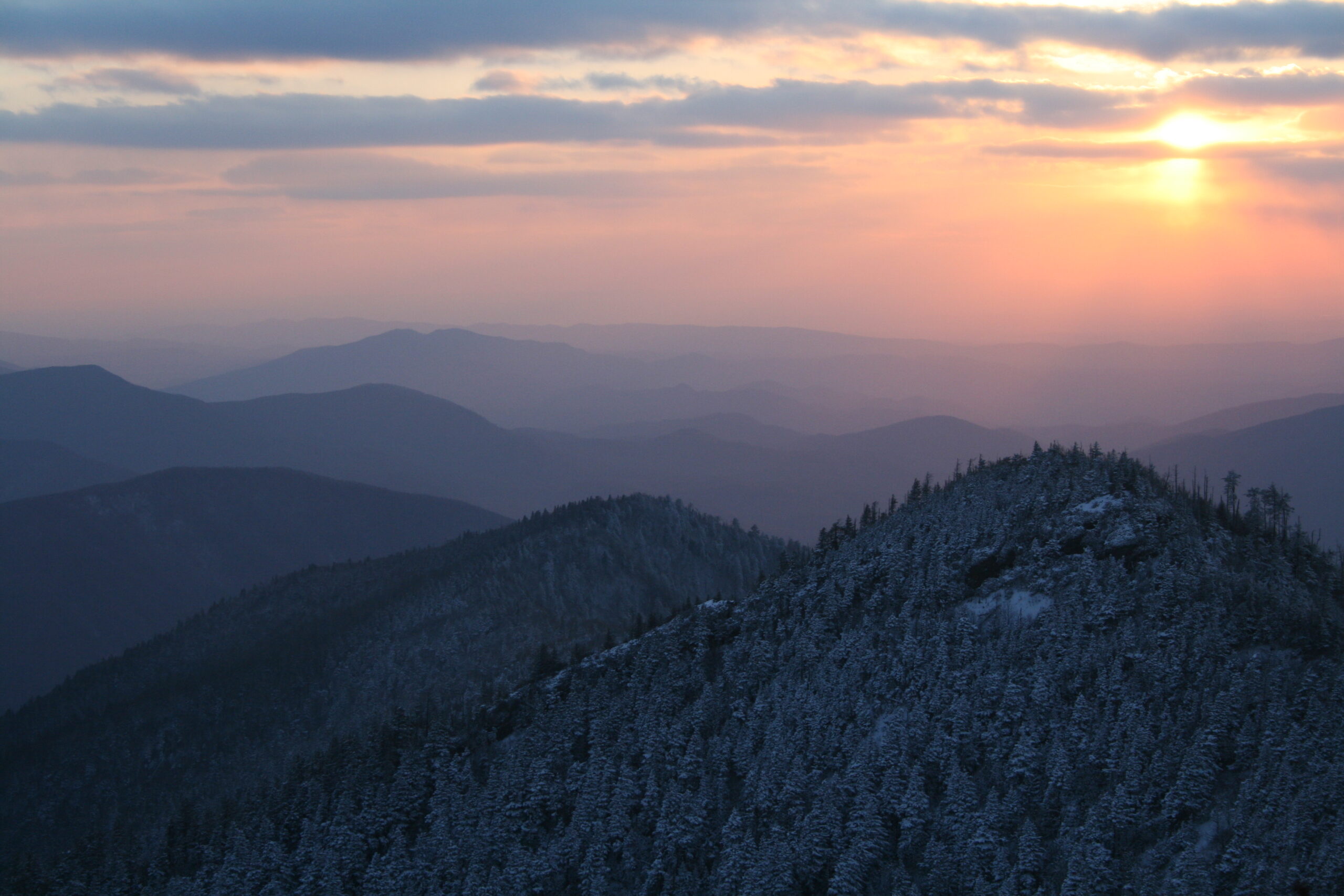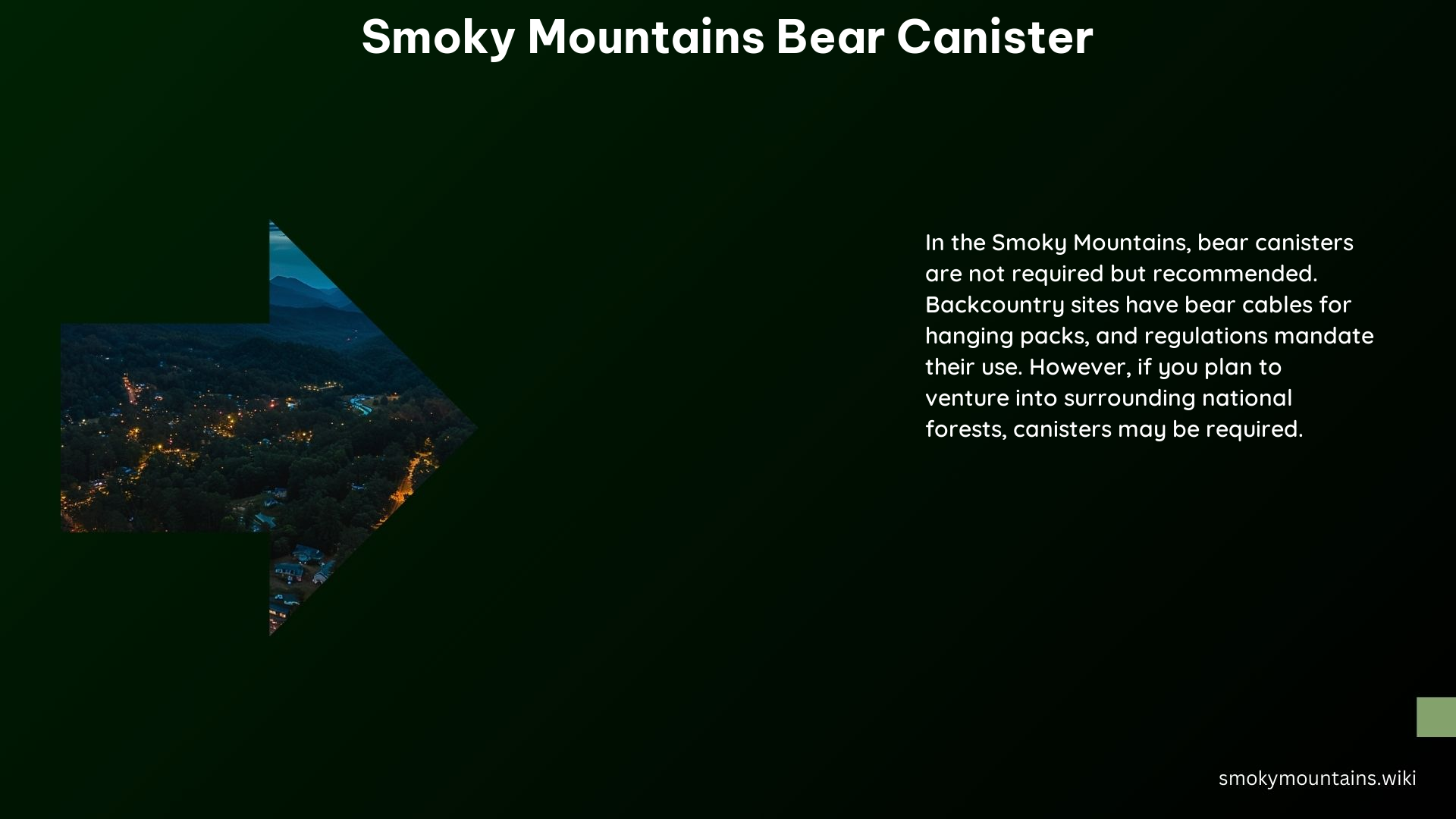Are you planning a backpacking trip in the Great Smoky Mountains National Park and wondering about the regulations and usage of bear canisters? Look no further! This comprehensive guide will provide you with all the information you need to navigate the bear canister requirements and ensure a safe and enjoyable experience in the Smokies.
Are Bear Canisters Approved for Use in Great Smoky Mountains National Park?

Bear canisters are not explicitly required for use in Great Smoky Mountains National Park. However, all backcountry campsites have bear cables that must be used for food storage. These cables are mandatory, and bear canisters are not necessary but can be brought if desired.
Can I Use Bear Canisters for Food Storage in the Backcountry Campsites of GSMNP?

Yes, you can use bear canisters for food storage in the backcountry campsites of GSMNP. However, bear cables are provided at all backcountry campsites, and these cables are the recommended method for food storage. Bear canisters are not required but can be used as an additional precaution.
Are Bear Canisters a Recommended Method for Bear Protection in the Smoky Mountains?
Bear canisters are not the primary recommended method for bear protection in the Smoky Mountains. Instead, bear cables are provided at all backcountry campsites and are the mandatory method for food storage. Bear canisters can be used as an additional precaution but are not necessary.
Backcountry Camping Regulations in GSMNP
- Reservations: Reservations for backcountry campsites can be made via phone at 1-877-444-6777 or online with recreation.gov.
- Food Storage: Bear cables are mandatory for food storage in backcountry campsites. All food and scented items must be stored in a vehicle or a camping unit constructed of solid, non-pliable material when not in use.
- Wildlife Interaction: Feeding, touching, or teasing wildlife is prohibited, and approaching within 50 yards of elk or bears is not allowed.
Advantages of Using Bear Canisters in the Smoky Mountains
While bear canisters are not required in the Smoky Mountains, they can provide additional benefits for backpackers:
- Increased Security: Bear canisters offer a more secure method of food storage compared to hanging food in bear bags, which can be more susceptible to bear intrusion.
- Convenience: Bear canisters eliminate the need to find suitable trees for hanging food, making the food storage process more straightforward.
- Peace of Mind: Using a bear canister can provide a greater sense of security and peace of mind, knowing that your food is stored in a highly bear-resistant container.
Recommended Bear Canisters for the Smoky Mountains
While bear canisters are not mandatory in the Smoky Mountains, some popular and reliable options include:
| Canister | Capacity | Weight |
|---|---|---|
| Bearikade Weekender | 650 cubic inches | 2 lbs 9 oz |
| Garcia Bear Resistant Container | 810 cubic inches | 2 lbs 11 oz |
| Backpacker’s Cache | 700 cubic inches | 2 lbs 5 oz |
Conclusion
In summary, while bear canisters are not required in the Great Smoky Mountains National Park, they can be used as an additional precaution for food storage. The mandatory method for food storage in the backcountry campsites is the use of bear cables, which must be utilized. By understanding the regulations and considering the advantages of using a bear canister, you can ensure a safe and enjoyable backpacking experience in the Smoky Mountains.
References
- https://www.reddit.com/r/backpacking/comments/bd6xtf/bear_canister_needed_in_smoky_mountains/
- https://www.youtube.com/watch?v=JT8m12nAS8c
- https://www.nps.gov/grsm/planyourvisit/campregs.htm
- https://www.rei.com/blog/travel/great-smoky-mountains-national-park-camping?srsltid=AfmBOor2ajm3B6iRRRY_Rpw6VQswY13dApFEHixwGtqawJ8DGQ3uXzIw
- https://www.nps.gov/grsm/planyourvisit/backcountry-regs.htm
